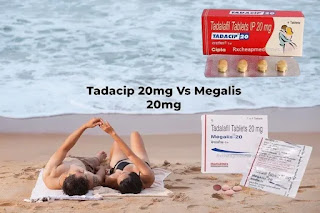Can anxiety cause premature ejaculation?
Premature ejaculation (PE) is a common sexual concern among men, impacting both physical and psychological well-being. Anxiety, a prevalent mental health issue, has been recognized as a potential contributing factor to premature ejaculation. Understanding the complex relationship between anxiety and premature ejaculation is crucial for individuals seeking solutions to improve their sexual health and overall quality of life.
Defining Premature Ejaculation:
The Role of Anxiety in Premature Ejaculation:
Performance Anxiety:
Performance anxiety is a significant contributor to premature ejaculation. The fear of not meeting one's or their partner's expectations can lead to heightened stress levels during sexual encounters, triggering a cascade of physiological responses that may hasten ejaculation. The pressure to perform well and the fear of judgment can create a self-perpetuating cycle, exacerbating the issue over time.
General Anxiety:
General anxiety, characterized by persistent worry and tension unrelated to specific situations, can also impact sexual function. Chronic anxiety can lead to an overactive sympathetic nervous system, resulting in increased arousal levels and a decreased threshold for ejaculatory control. The heightened state of alertness can interfere with the ability to relax and enjoy the sexual experience, contributing to premature ejaculation.
Relationship Anxiety:
Relationship dynamics play a crucial role in sexual health, and anxiety related to relationship issues can contribute to premature ejaculation. Communication challenges, unresolved conflicts, or emotional distance between partners can create a stressful environment that negatively impacts sexual performance.
Physiological Mechanisms:
Furthermore, anxiety may disrupt the delicate balance between neurotransmitters in the brain, such as serotonin. Serotonin is known to play a role in delaying ejaculation, and imbalances may contribute to a shorter ejaculatory latency time, increasing the likelihood of premature ejaculation.
Treatment Approaches:
Counseling and Psychotherapy:
Sex therapy provides a safe space for couples to explore and communicate about sexual concerns, fostering a healthier sexual relationship.
Know More: - Buy Cheap Medicines for premature ejaculation (PE)
Mind-Body Techniques:
Pharmacological Options:
Selective serotonin reuptake inhibitors (SSRIs), commonly used as antidepressants, have been shown to delay ejaculation and may be prescribed off-label for premature ejaculation.
Lifestyle Modifications:
Adequate sleep, a balanced diet, and stress management contribute to overall health and may alleviate anxiety-related premature ejaculation.
Communication within the Relationship:
The link between anxiety and premature ejaculation underscores the complex interplay between psychological and physiological factors influencing sexual function. Acknowledging the impact of anxiety on sexual performance is the first step toward seeking effective interventions. By adopting a holistic approach that addresses both the psychological and physiological aspects, individuals and couples can navigate the challenges of premature ejaculation, fostering a healthier and more satisfying sexual experience. Seeking professional guidance, practicing open communication, and exploring therapeutic options can pave the way for improved sexual well-being and overall relationship satisfaction.
Know More: - Buy Manforce 100 Mg Generic Viagra




Comments
Post a Comment